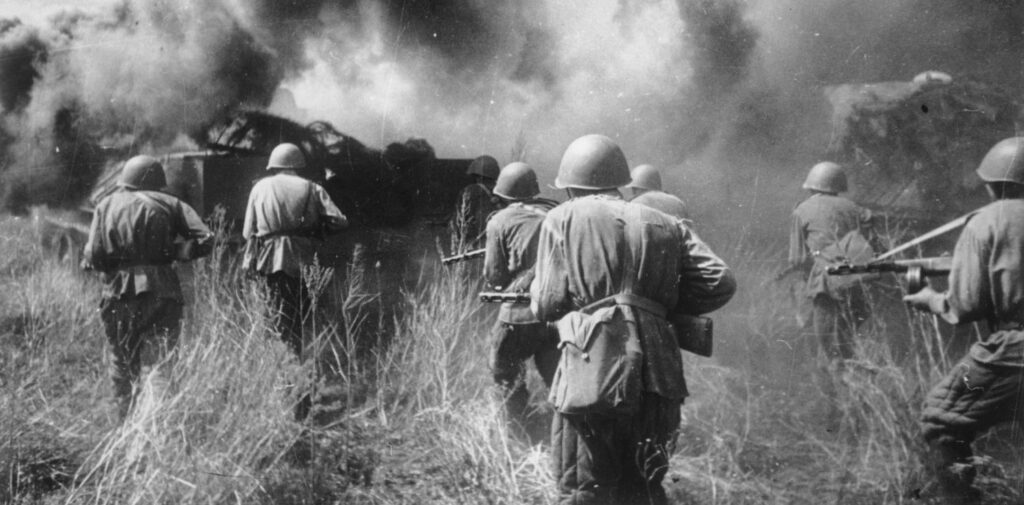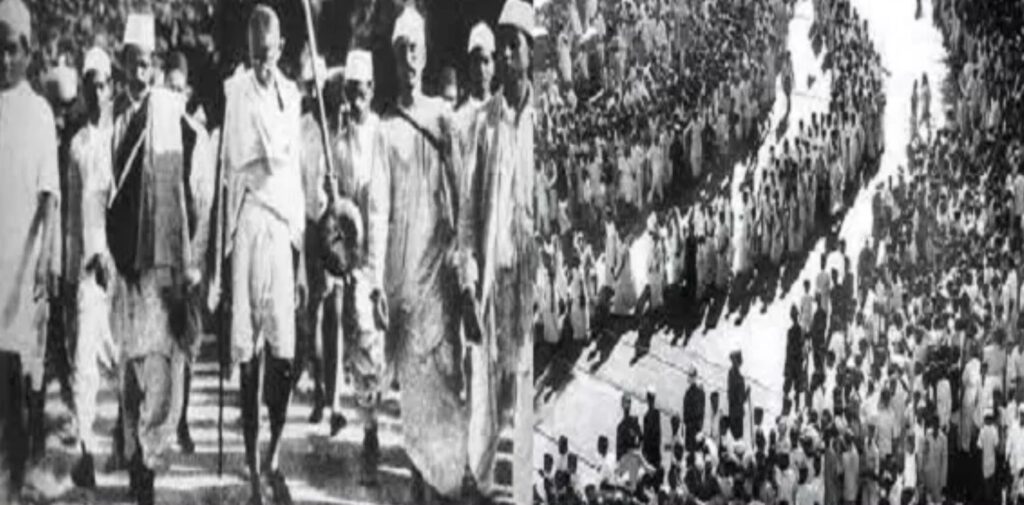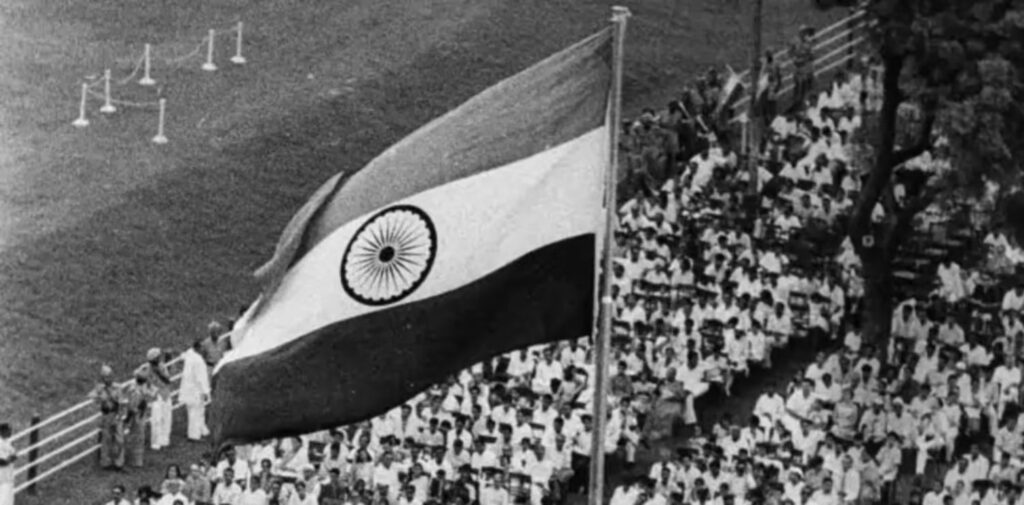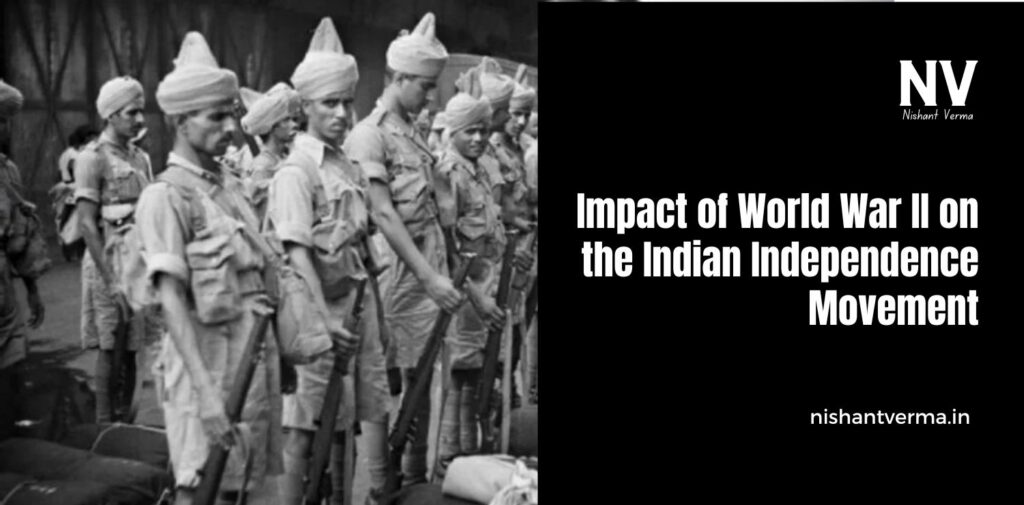India’s fight for independence from British rule was a long and difficult journey. This struggle was affected by many events and movements, and one of the most important events that changed the course of history was World War II. The war, which took place from 1939 to 1945, had a significant impact on the Indian independence movement. Let’s explore how the Impact of World War II influenced India’s path to freedom.
The Start of World War II and India’s Position
World War II was a major global conflict, with most countries around the world involved in the fighting. It started in 1939 when Germany, led by Adolf Hitler, attacked Poland. This caused other countries like Britain and France to declare war on Germany. India, which was under British rule at the time, was automatically involved in the war because India was a part of the British Empire.
However, the Indian people were not consulted about whether they wanted to participate in the war. This made many Indians unhappy, as they were already struggling for their independence from British rule.

The Impact of the War on India
The war brought about many changes in India. For one, the British government, which was already weakened by the demands of ruling a vast empire, became more focused on fighting the war and less focused on maintaining its colonies like India. India, on the other hand, was severely affected by the war in many ways.
During the war, India faced food shortages, inflation (which made goods and services more expensive), and economic hardship. The British also used Indian soldiers to fight in battles far away, and many soldiers lost their lives. The war caused much suffering for ordinary people, and the resentment towards British rule grew stronger.
The Quit India Movement: A Turning Point
One of the most important outcomes of World War II on India’s independence movement was the Quit India Movement. This movement was started by Mahatma Gandhi and the Indian National Congress in 1942, just after India was drawn into World War II. The Quit India Movement was a strong call for the British to leave India immediately and hand over control of India to the Indian people.
Gandhi and other leaders realized that the war had weakened British power, and this was the perfect time to push for independence. The Quit India Movement called for mass protests, strikes, and civil disobedience to force the British out of India. The slogan “Do or Die” became popular during this time.
Unfortunately, the British reacted strongly to the movement by arresting many leaders, including Gandhi. However, despite the arrests, the Quit India Movement made it clear that Indians were no longer willing to tolerate British rule. It showed the British that the people of India were united and determined to gain independence.

The Role of the Indian National Army (INA)
Another important event that took place during World War II was the formation of the Indian National Army (INA), also known as the Azad Hind Fauj. The INA was led by Subhas Chandra Bose, one of India’s most famous freedom fighters.
Bose, who was dissatisfied with the way the British treated India, decided to take a different route to independence. He went to Germany and then to Japan to seek their support in India’s fight for freedom. With the help of the Japanese, Bose formed the INA, which was made up of Indian soldiers who had been captured by the British during the war.
The INA fought alongside the Japanese against the British forces in Southeast Asia, hoping to march into India from the east and liberate the country from British rule. Though the INA did not succeed in its military objectives, it played an important role in showing the British that India was capable of fighting for its freedom. The INA inspired many Indians and showed them that their independence could be achieved through force if necessary.
The Impact of World War II on British Rule
World War II had a huge impact on the British Empire. The war drained the British economy and weakened its control over its colonies, including India. The British government, struggling to maintain control over the empire, realized that it was becoming more difficult to hold onto India.
The war also changed the global political landscape. After the war, there was a growing desire for independence and self-rule in many countries. The war had shown people all over the world that colonialism was no longer acceptable. As a result, many countries started demanding their freedom, including India.
India’s efforts during the war had made it clear that the country was united in its desire for independence. The Quit India Movement and the formation of the INA had shown the British that their hold over India was weakening.
Growing Support for Indian Independence
The events of World War II also helped increase support for Indian independence among people of all communities. During the war, many Indians, including students, workers, and farmers, began to support the Quit India Movement and the idea of independence. The British were losing the trust of the people, and their ability to maintain control was declining.
Many Indian soldiers, who had fought for the British during World War II, returned to India after the war. They had seen how badly the British treated them and their fellow soldiers. When they returned, they joined the struggle for independence, which made the movement even stronger.

The End of British Rule: India Gains Independence
By the time World War II ended in 1945, the British Empire was exhausted, and it had become increasingly difficult to maintain control over its colonies. India’s resistance had grown stronger during the war, and the British realized that they could no longer keep India under their rule.
In 1947, India finally achieved independence. The British left India, and the country was divided into two nations, India and Pakistan. The freedom that the Indian people had fought so hard for was finally achieved, and the British were forced to end their colonial rule over India.
Conclusion
World War II played a crucial role in India’s fight for independence. The war weakened the British Empire and changed the global political landscape. It allowed India’s freedom movement to push for independence, and it led to important events like the Quit India Movement and the formation of the Indian National Army.
The people of India, including leaders like Mahatma Gandhi and Subhas Chandra Bose, fought tirelessly for their country’s freedom. Even though India faced many hardships during the war, it was also a time when the country’s struggle for independence became stronger and more united. Ultimately, the impact of World War II helped India achieve its long-awaited independence in 1947, ending nearly 200 years of British rule.




